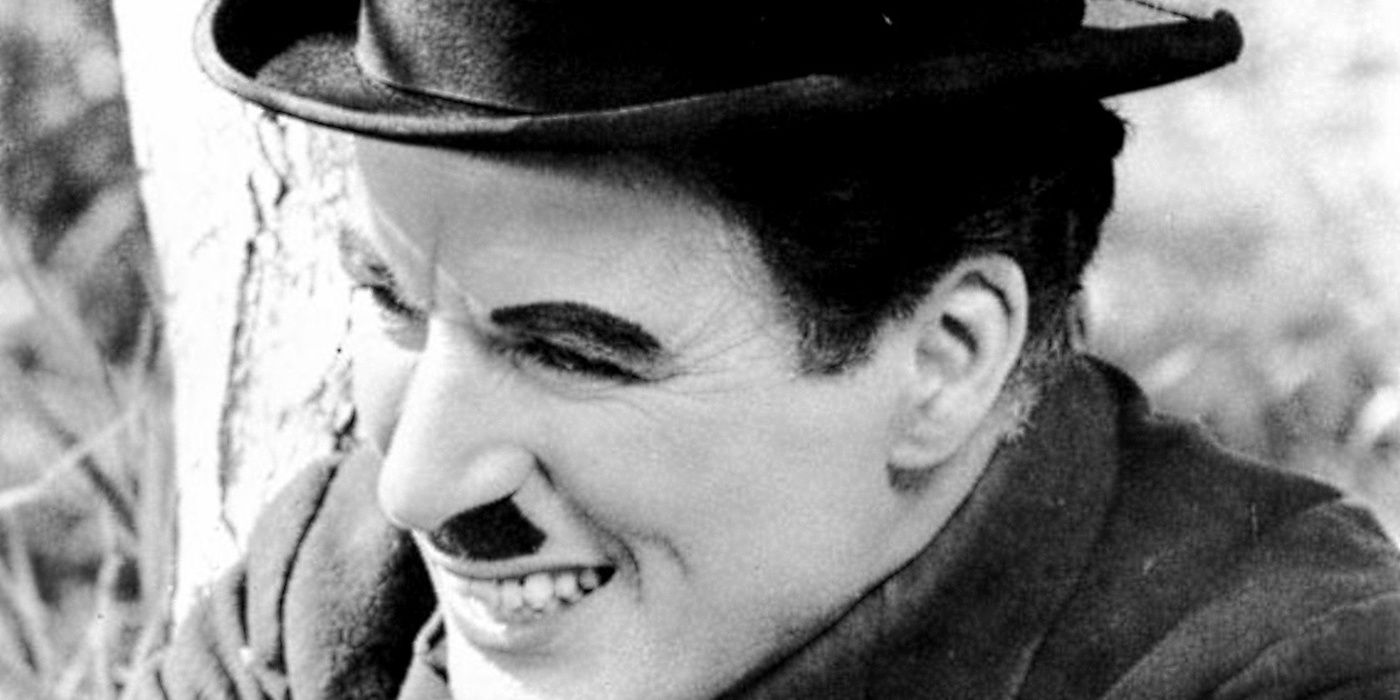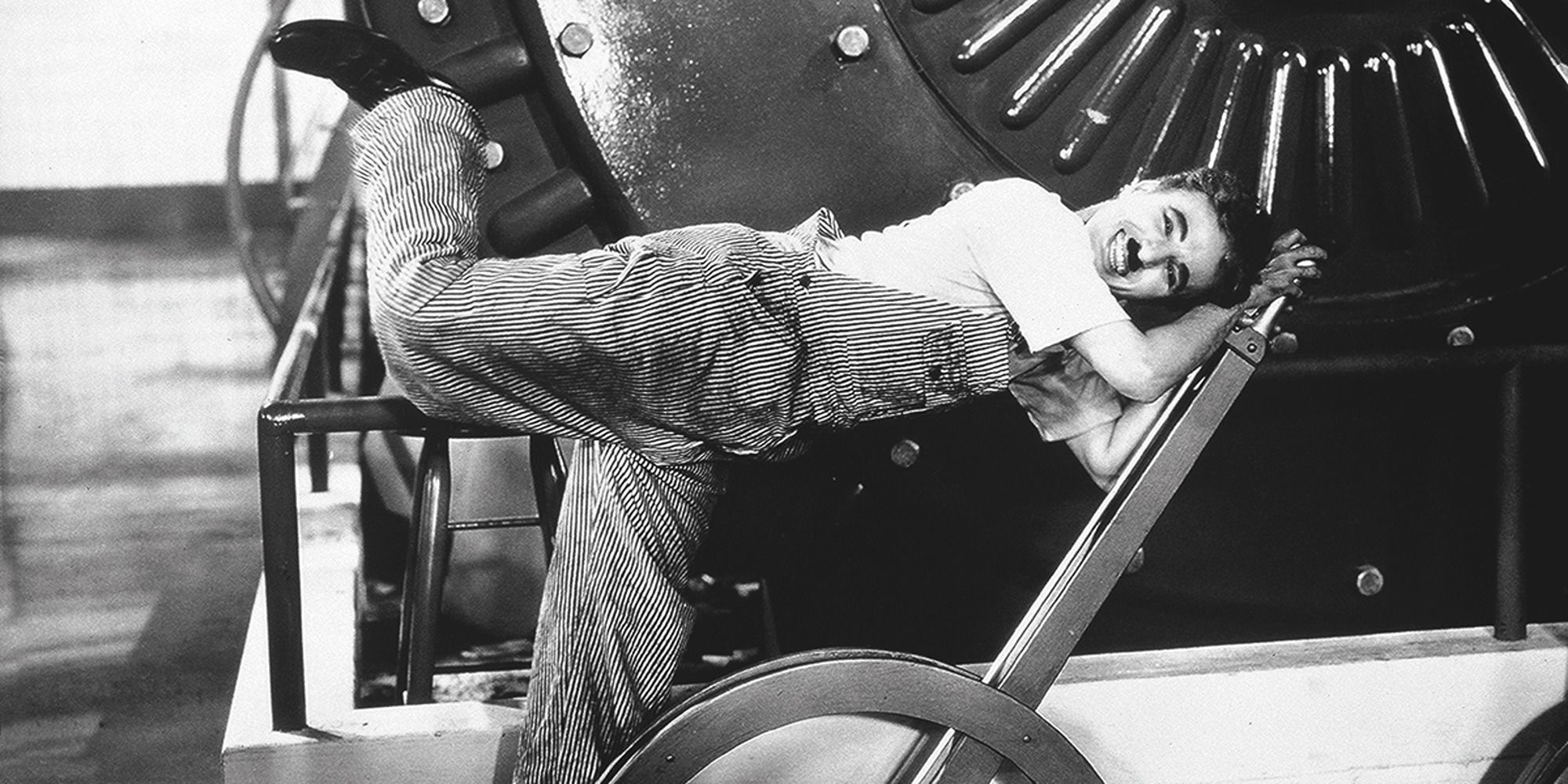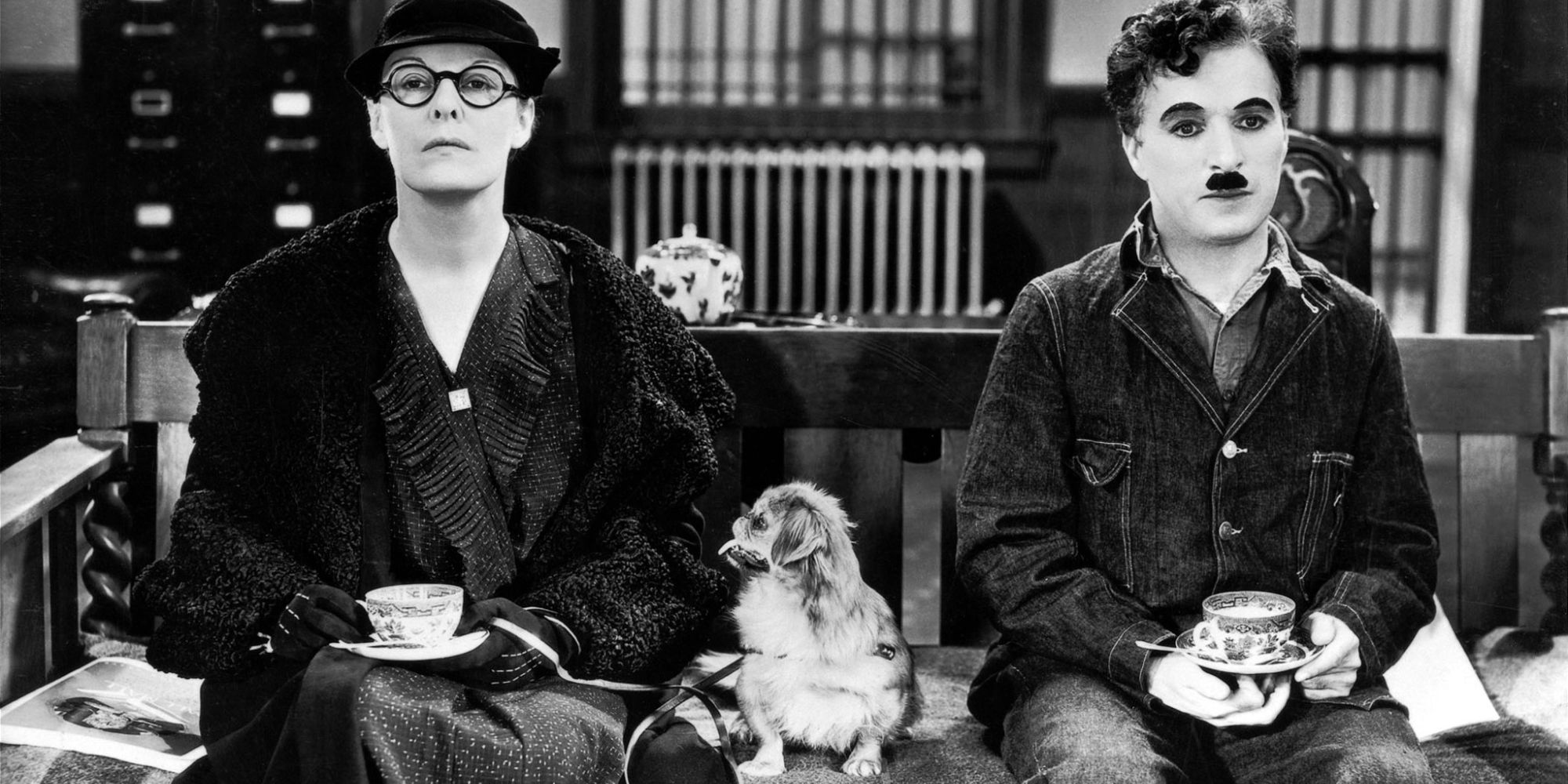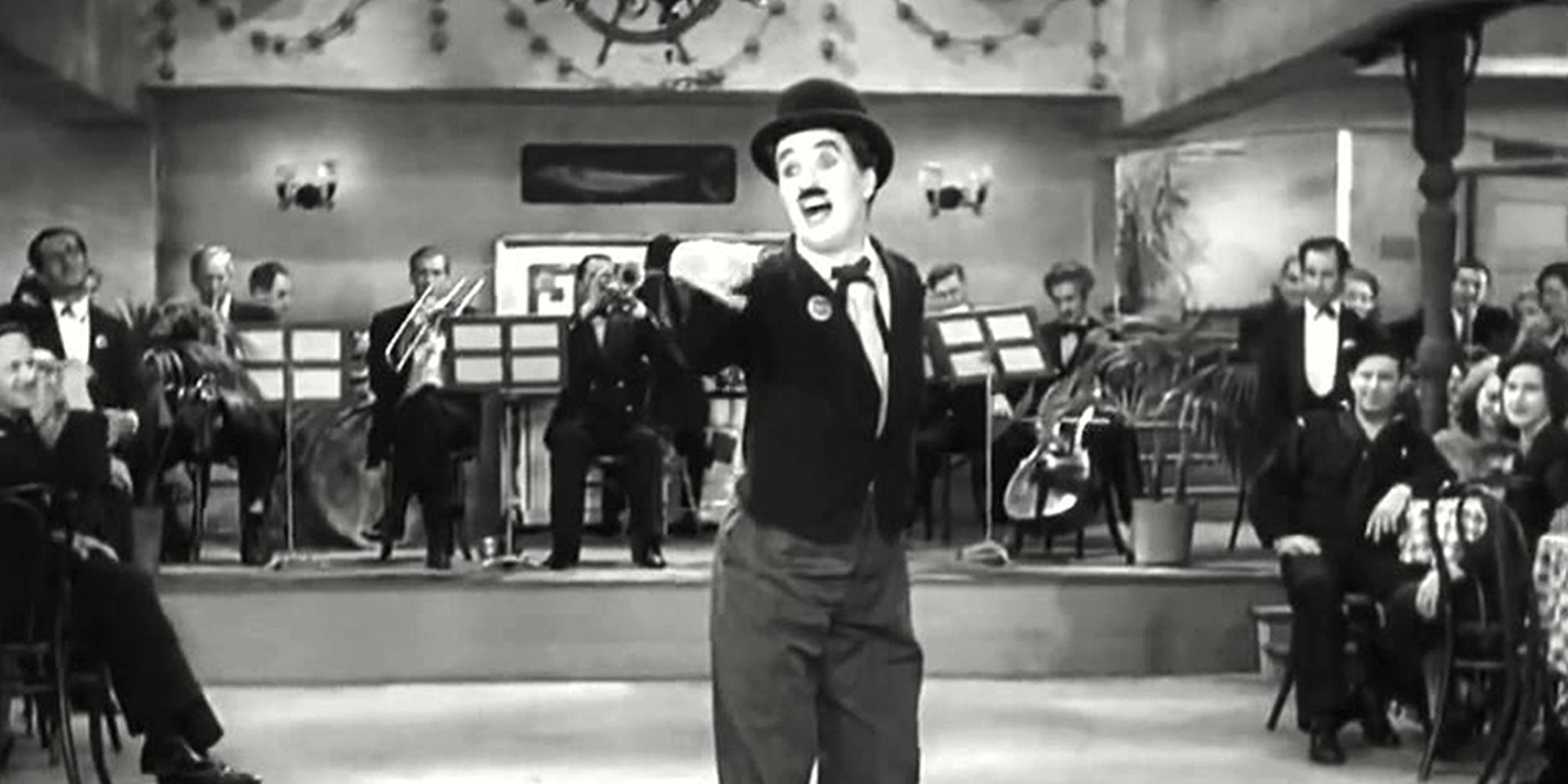The Big Picture
Fans of cinema history’s greatest comic (sorry, Buster) will remember one of the most pivotal scenes of his career when in Modern Times, Charlie Chaplin’s iconic character of ‘the Tramp’ spoke for the first time in the form of a song… entirely in gibberish, all in an attempt to maintain the character’s international universality. Imagine the hype in 1936 when moviegoers realized that Chaplin’s Tramp, after having been the silent star of dozens of short and feature-length films alike, was set to speak for the first time. For such a romantic character who had been through endless torment in the form of the most hilarious silent-era gags and conquered the hearts of millions, you’d expect him to divulge the secrets of happiness and the universe. Instead, after being forced into a public performance amid waiting tables, he’s urged on by his lover “the Gamin” (Paulette Goddard, Chaplin’s real-life partner at the time) to “Sing!! Never mind the words!”
And mind the words he never does, speaking in what sounds at first to be a peculiar combination of French and Italian. Of course, none of that matters because by the time he ends every verse with a “tu la ti la twah” or some variation, the whole audience, both within the film and presumably in the theaters themselves, is cackling at the Tramp’s adorability, physicality, and naïveté. It’s an odd mix of pity and admiration that urges us to laugh at the Tramp. With Modern Times being the first time the world would hear the Tramp’s voice, Chaplin wouldn’t dare shatter that goodwill. No one puts it better than Jeffrey Vance in the piece referenced above when he states that “talking in any one language is meaningless in all others”. However, Chaplin had such a powerful and articulate physicality that it didn’t matter, so long as the gestures were there.
Why Did Charlie Chaplin Release ‘Modern Times’ Without Dialogue?
Here’s the thing, sound films were the norm by 1936, but Charlie Chaplin still chose to release Modern Times, as well as his 1931 masterpiece City Lights, entirely without dialogue. This wasn’t a case like The Artist, however, where it was his lack of talent in the transition that held him back. Chaplin’s first dialogue picture, 1940’s The Great Dictator, masterfully uses sound, not simply for that rousing speech at the end, but for the gags throughout (think of the typewriter scene for instance). In Modern Times, Chaplin’s directorial control shines when, in the factory scene, it’s only the production plant’s boss to whom he decides to give an actual voice. This choice speaks to the film’s most pivotal theme: the plight of the working class and the dehumanizing effect of machinery.
For anyone who thinks Modern Times is just another flick of the Tramp bumping into trouble, take note! Modern Times was actually inspired by Mahatma Gandhi after a discussion on machinery during his visit to East London (Chaplin’s place of origin). Elements of the era’s Great Depression are present throughout every scene, as is Chaplin’s sympathy for the working class. According to Vance, Chaplin was struck by the story of young Detroit farmers who left their rural life to work in factories, only to suffer nervous breakdowns. That’s why in Modern Times, the gags aren’t just gags but a comment on society, like Fritz Lang’s Metropolis if it could make you laugh.
One particularly conscious gag includes an early scene in which the Tramp desperately struggles to keep pace with the factory’s machine, sliding into the internal mechanisms of the machine in hilarious cartoon fashion. Another features the introduction of the factory’s “Feeding Machine,” a mechanized spoon-feeder intended to save time on workers’ lunch breaks that goes as badly as you’d imagine. The film even features a reference to cocaine as, while trapped in prison, the Tramp finds himself suspected of smuggling “nose powder” into the facility. This was especially daring during the time as the Hays Code (then pretty fresh) prevented the depiction of illegal drugs onscreen. Chaplin, however, was way too ahead of his time to pay the Hays Code any mind whatsoever.
‘Modern Times’ Is the Ultimate Tribute to the Tramp
Charlie Chaplin knew he’d be saying goodbye to his beloved character, The Tramp, with this one and therefore, Chaplin unleashed every gag he had left upon him. Though it’s now considered among the greatest films of all time, contemporaneously, the film’s reception was pretty split, specifically for the fact that it sets up a workers’ rights revolution that fizzles out into a more standard Chaplin rom-com (as if that were a bad thing). While audiences had seen him in countless silly situations before, this was the first time his down-on-his-luck antics had such strong connotations to the real world and mirrored the struggles of the audience.
After the Tramp and the Gamin are chased out of the restaurant by police officers, the Gamin laments “What’s the use of trying?” The Tramp replies “Buck up – never say die. We’ll get along!” He motivates her to smile as the camera lingers on a shot of the two of them walking towards a promising dawn sunrise. There’s no telling what the future holds but for the Tramp and for his fans, his infectious trademark optimism gives them the courage to keep trying through the hardest of times. If entertainment serves one fundamental purpose to society, it’s that.










